Polina Ilieva: UCSF Archivist Preserving University’s Storied Past for a Dynamic Future
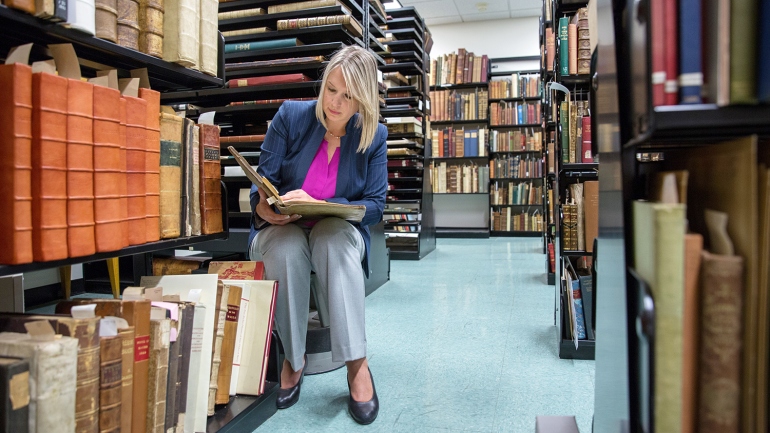
UC San Francisco’s Archives and Special Collections contains books that date back to when Latin was the main language used in medicine and artifacts that belonged the University’s founding members.
Managing and maintaining the physical collection of thousands upon thousands of documents and artifacts from UCSF’s century-and-a-half-long history is a daunting job that requires a truly committed team. It is also increasingly vital in today’s rapidly changing health care landscape and digital age.
For Polina Ilieva, who oversees UCSF Archives and Special Collections, the work of the archives is to preserve the items in the collection, to make them accessible to internal and external audiences, and to move toward digitizing the entire collection of artifacts.
“We are archiving and preserving the past for the future, so that we can understand and appreciate how UCSF went from being a small medical college to the world-renowned research university it is today,” said Ilieva, who has been at UCSF for more than a decade and head archivist since 2012.
A Rich, Diverse Collection
Since UCSF’s 1864 founding, the University’s library has maintained a collection of old lectures, medical artifacts, books and other unique materials. The UCSF Archives were formally established in 1963 when former UC President Clark Kerr mandated the creation of a records management and archives program. Today, Ilieva’s team – which comprises two permanent staff members, two-grant funded archivists and three interns – identifies, collects, organizes, interprets and provides access to materials that support research and teaching in the history of the health sciences.
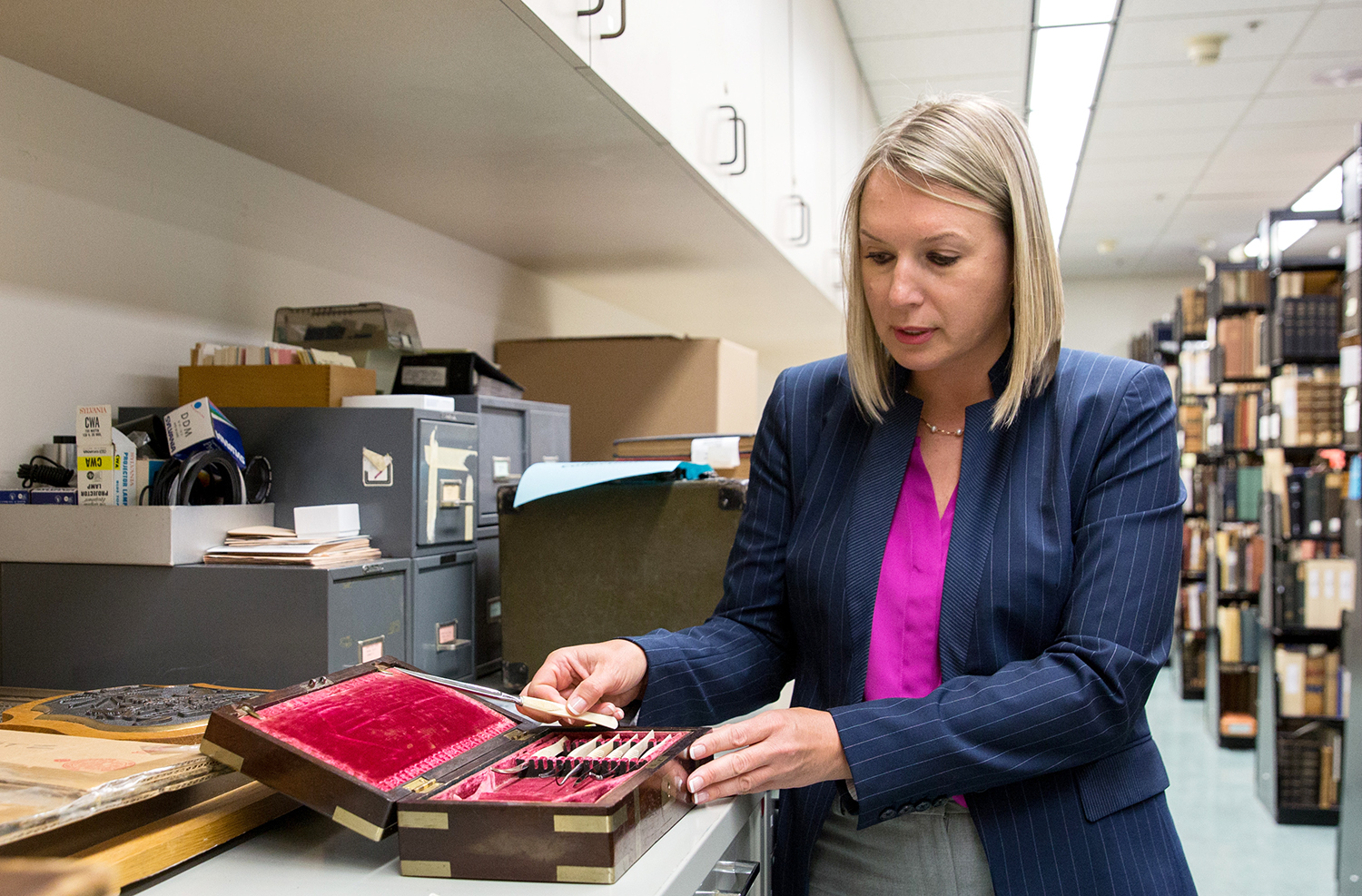
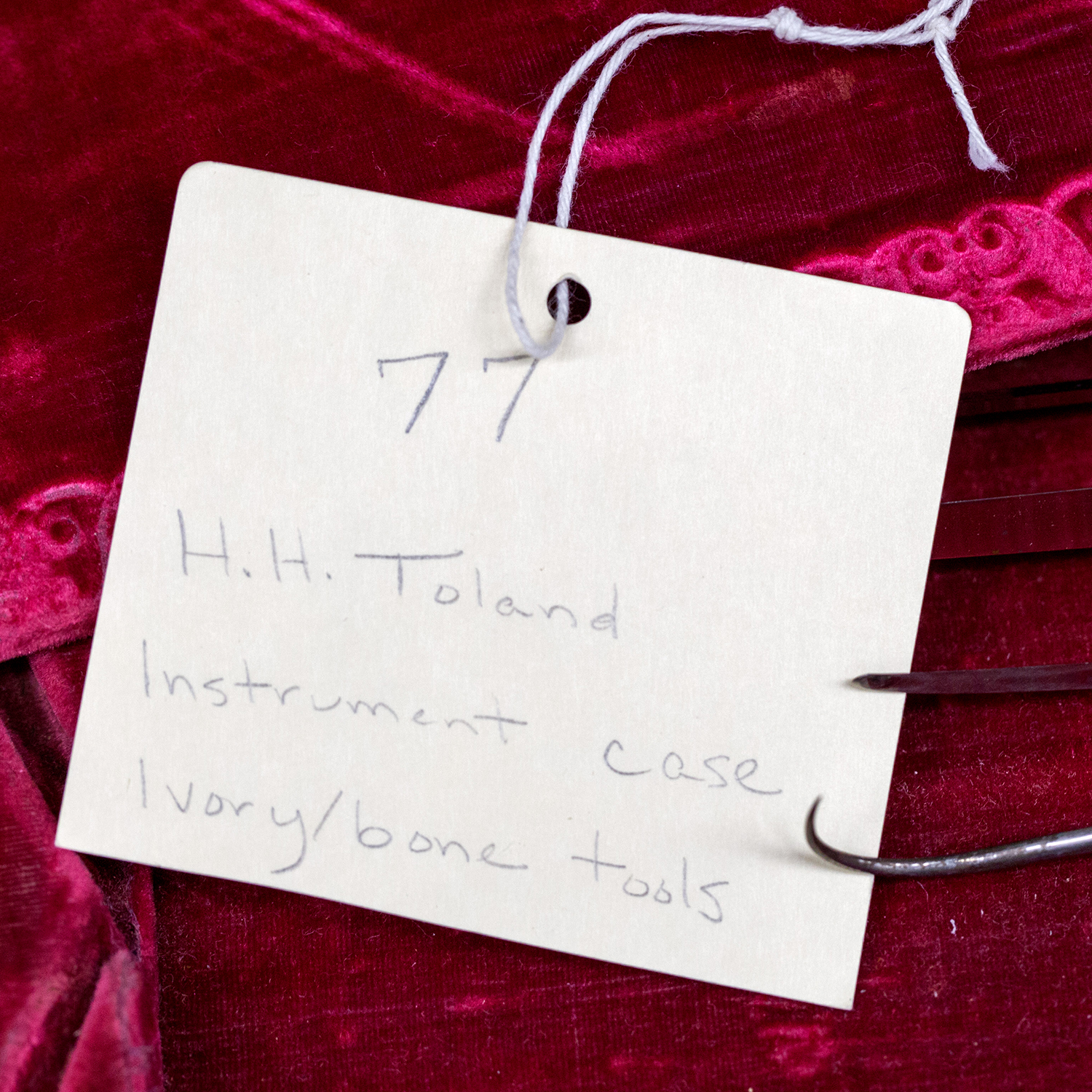
“Not only are we acting as the school’s institutional memory, but we are able to present UCSF’s history within the context of the history of medicine,” said Access and Collections Archivist David Uhlich. “There have been some amazing accomplishments made here over the last 150 years, and by presenting these accomplishments as part of the overall progression of the health sciences, we can truly appreciate their magnitude.”
Ilieva and her team work closely with UCSF’s four professional schools and individual departments to identify and gather new materials for the archives. Its collection of more than 1,000 medical artifacts includes doctor bags, surgical kits, nursing uniforms and old textbooks. A World War I-era amputation kit and a midcentury portable electrocardiograph machine were both recently added to the mix.
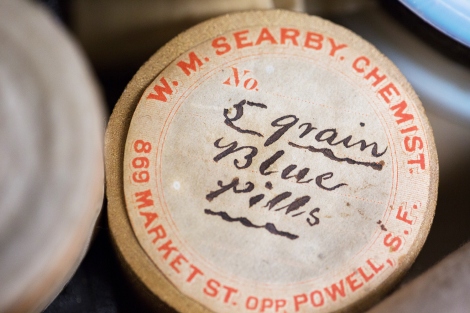
Several major collecting areas reflect many of UCSF’s particular strong suits, including premiere collections on the history of AIDS, the development of biotechnology, the history of tobacco control, and progress in women’s health, among others. The breadth of UCSF’s collections attracts users from around the world, including researchers, filmmakers and journalists.
The group also maintains 15,000 volumes of rare books dating back to the 1480s that cover everything from anatomy and physiology to homeopathy and herbal medicine.
“This collection is a treasure trove that facilitates a unique historical understanding of health policies, scientific developments and advances in patient care,” said Kelsi Evans, who works as a project archivist alongside Ilieva and Uhlich.
Collecting in a Digital Age
During her tenure, Ilieva has led the effort to move toward more digital archiving. For the past 15 years, Archives and Special Collections has been digitizing materials, scanning countless images, and creating sites to aggregate the web-based collections. There are currently more than 2,000 university publications, yearbooks, pamphlets and books dating back to the 16th century available in digital form. Each newly cataloged and processed collection has a digital component and these scanned primary sources, including almost 4,500 photographs, documents and oral histories, are accessible through the California Digital Library portal, Calisphere.
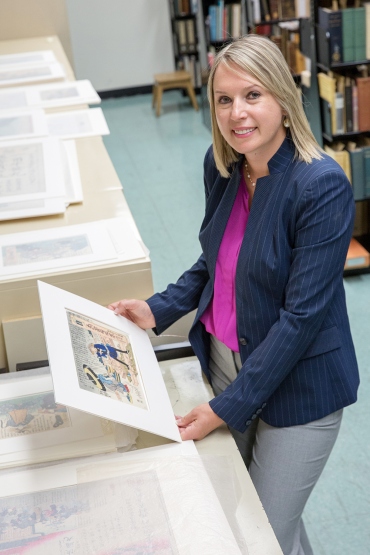
What used to arrive at Ilieva’s office in the form of boxes upon boxes of paper now comes as a hard drive or even just a laptop computer. And as more of UCSF’s history becomes tied to the Internet and social media, it is up to Ilieva to determine the best programmatic approach for preserving and presenting these materials.
“It is constantly evolving, and we are working hard to archive everything from outdated websites and e-newsletters to social media campaigns, as these are all important parts of UCSF’s history moving forward,” Ilieva said.
As part of her larger goal for the archives, Ilieva is collaborating with the San Francisco Public Library and the Gay, Lesbian, Bisexual, Transgender Historical Society on a joint project to secure funding to digitize about 150,000 pages from 49 archival collections related to the early days of the AIDS epidemic in the San Francisco Bay Area and make them widely accessible to the public on the Internet.
Ilieva would like her office to make high-resolution images of every artifact in the archives. Those images could be uploaded to Calisphere, providing 3-D remote access to unique apparatuses, machines, and instruments that were invented at UCSF or used by faculty and students during classes and to treat patients from 1864 through 1960s.
The history would allow researchers to trace their evolution and scientific advancements, though the undertaking of such a project is a costly undertaking. The archives team will be submitting grant proposals and identifying donors that can fund the project.
A Core Commitment to Helping Others
Ilieva’s commitment to her work is rooted in a deep joy of helping others. She often receives emails or phone calls from individuals looking for information about family members who attended UCSF long ago, and derives great pleasure when she is able to provide them with photographs and other historical mementos.
“It really is quite amazing and uplifting to provide these for people, to help tell the story of their family history,” she said.
Ilieva and her team have been working with numerous UCSF schools and departments helping them compile their histories, bringing to light pioneering research that was accomplished by previous generations that created the building blocks for today’s discoveries.
“At the end of the day, I just love helping people. This work is so very creative and diverse, and I feel great joy making new collections accessible and promoting continued scholarship.”
For more campus news and resources, visit Pulse of UCSF.